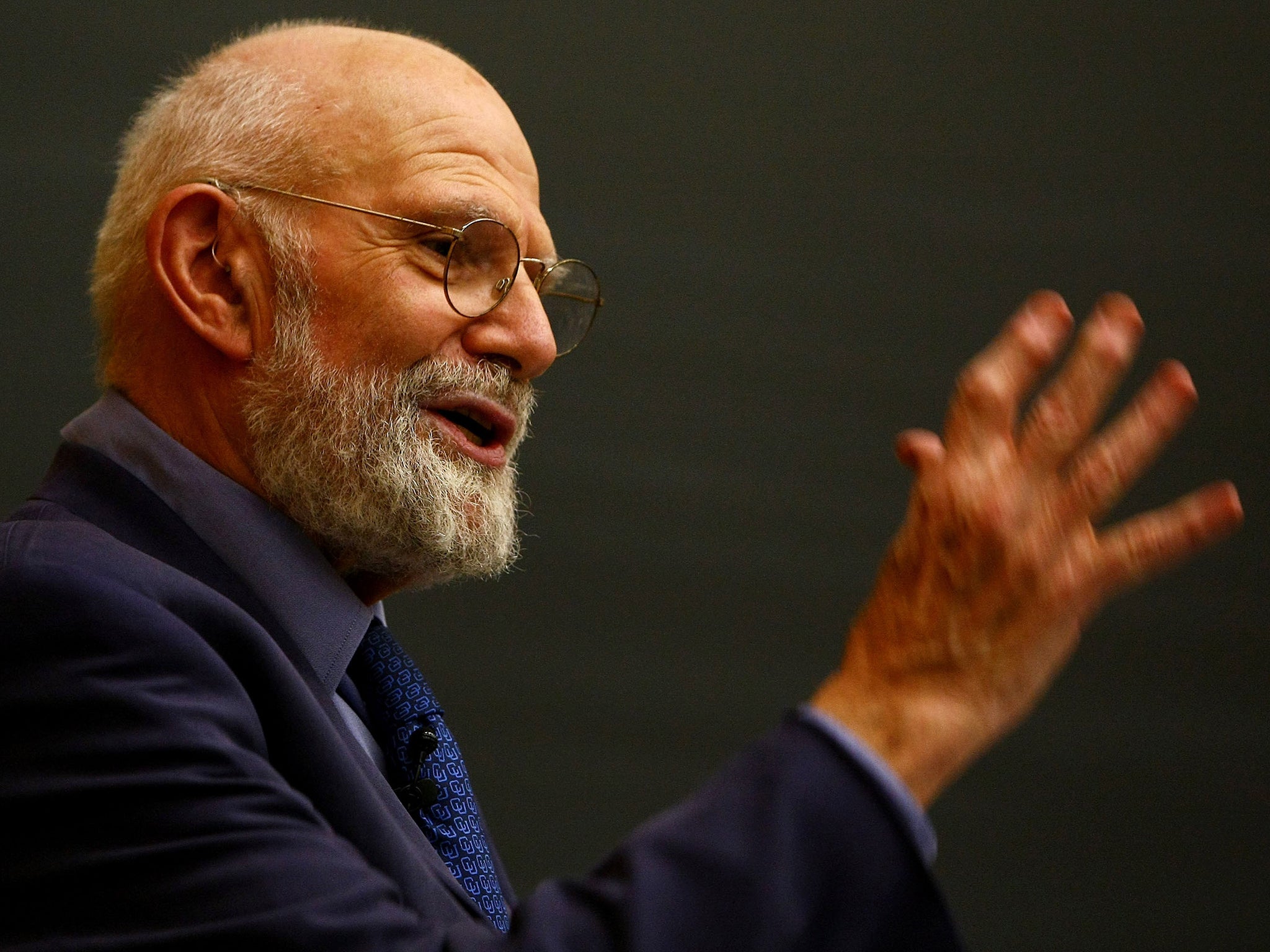The Independent's journalism is supported by our readers. When you purchase through links on our site, we may earn commission.
Oliver Sacks said his life has been 'an enormous privilege and adventure'
'I have loved and been loved,' he wrote in February

Your support helps us to tell the story
From reproductive rights to climate change to Big Tech, The Independent is on the ground when the story is developing. Whether it's investigating the financials of Elon Musk's pro-Trump PAC or producing our latest documentary, 'The A Word', which shines a light on the American women fighting for reproductive rights, we know how important it is to parse out the facts from the messaging.
At such a critical moment in US history, we need reporters on the ground. Your donation allows us to keep sending journalists to speak to both sides of the story.
The Independent is trusted by Americans across the entire political spectrum. And unlike many other quality news outlets, we choose not to lock Americans out of our reporting and analysis with paywalls. We believe quality journalism should be available to everyone, paid for by those who can afford it.
Your support makes all the difference.Acclaimed neurologist Oliver Sacks wrote about his attitude to death in the New York Times newspaper after learning he had terminal cancer.
The best-selling author wrote of his gratitude for the opportunity to live on planet earth with other human beings.
“I cannot pretend I am without fear. But my predominant feeling is one of gratitude,” he said.
“I have loved and been loved; I have been given much and I have given something in return; I have read and traveled and thought and written. I have had an intercourse with the world, the special intercourse of writers and readers.”
“Above all, I have been a sentient being, a thinking animal, on this beautiful planet, and that in itself has been an enormous privilege and adventure.”
He also reserved a word for the individuality of human existence, which he said the recent deaths of his contemporaries had made him more aware of.
“I have been increasingly conscious, for the last 10 years or so, of deaths among my contemporaries. My generation is on the way out, and each death I have felt as an abruption, a tearing away of part of myself,” he said. There will be no one like us when we are gone, but then there is no one like anyone else, ever. When people die, they cannot be replaced.
“They leave holes that cannot be filled, for it is the fate — the genetic and neural fate — of every human being to be a unique individual, to find his own path, to live his own life, to die his own death.”
Dr Sacks, once described as the “poet laureate of medicine”, passed away age 82 at the weekend.
Born in London, he has lived in New York since 1965. He books are best known for writing case histories of patients’ disorders.
The full comment piece can be read here.
Join our commenting forum
Join thought-provoking conversations, follow other Independent readers and see their replies
Comments